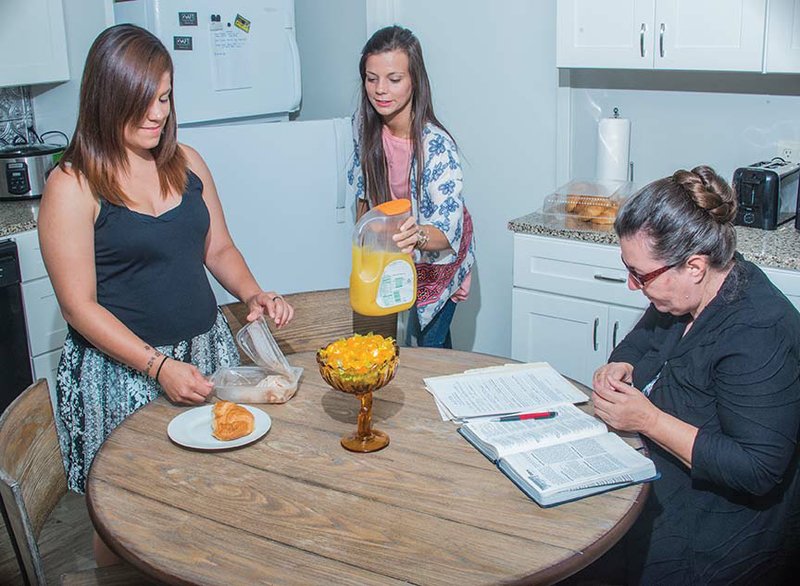HOT SPRINGS — After an anonymous $150,000 donation in 2016, LakePointe Church in Hot Springs had the funds to buy a home to house The Hope Movement. The eight-bedroom, eight-bath building suits the organization’s mission of helping women re-enter society after they have undergone a drug-treatment program.
Desiree Skeya, executive director of The Hope Movement, said the atmosphere in the house is phenomenal.
It all began when Greg Bearss, lead pastor at LakePointe Church, noticed a lot of handwritten prayer requests for people to stay clean. He and his wife, Kristi, opened their home to some of the women to aid their recovery. He realized that a lot of people have nowhere to go when they finish a treatment program. Eventually, other church members began to offer their homes to the women. It became clear that the church needed to start a charity and buy a home. That is when an anonymous donation gave the charity a firm foundation.
“[Bearss] went up in front of the church and said, ‘I know a lot of you don’t know what $150,000 looks like, but we found a house, and we think we can get it for $150,000,’” Skeya said. “Long story short, that Monday there was a check from an out-of-state visitor for $150,000.”
The previous owners were a group of nuns from a Catholic church nearby. That means that each woman had her own bedroom and bathroom, ideal for the purposes of boarding women in recovery.
“Mind you, everything in the house was the exact same from like 1960,” Skeya said. “Blue carpet in the whole entire house, popcorn ceilings. They had done no remodeling, but they had taken care of the house. We had people from the community come in and donate to paint the walls. We had different churches donate to sponsor rooms. We had a granite-countertop place here in town come in and say, ‘We wanna do all the bathroom counters, the kitchen counters.’ We had someone come in and redo the cabinets. The community has really just come together and stood behind this ministry.”
Now the ministry works with the court and other recovery programs to find suitable candidates for the organization to house. Women may also apply online at TheHopeMovement.net.
The experience is positive, said Wendi Barfield, 41.
“It’s amazing,” Barfield said. “I have my own room and my own bathroom. They are helping me learn to live life, back on life’s terms.”
She had a career in the Air Force before her problem with addiction.
“I didn’t start using drugs until I was 35,” Barfield said. “I had a career for a long time [in the Air Force]. I got injured, had to have surgery and got put on pain pills. It stems from that.”
Skeya has a fondness for the women in the ministry. She only calls them ladies, and although she spends most of her time running errands and taking care of the ladies, she seems to be thankful for the opportunity.
The ministry helps the women find jobs right away. Throughout the week, they are required to attend classes at night. These faith-based workshops teach them how to take care of things such as money, for example. And the whole experience is imbued with spiritual teachings.
The aim of all of this is to assist the women in completing their recovery process. Going to jail may be the catalyst to get them off drugs, but keeping them off is the role that organizations like The Hope Movement play in the women’s futures.
